Last updated on February 23rd, 2024 at 05:08 pm
When it comes to outfitting your basement, especially in areas prone to flooding, the choice of flooring is paramount. Not only does the right flooring need to withstand the occasional water intrusion, but it should also contribute to a comfortable and appealing living space.
For areas that often get wet or might flood, the best flooring options include vinyl, ceramic tile, waterproof concrete, and rubber. Vinyl comes in rolls, tiles, or planks and sticks to the floor with a special glue. These materials are chosen because they handle water well and are durable.
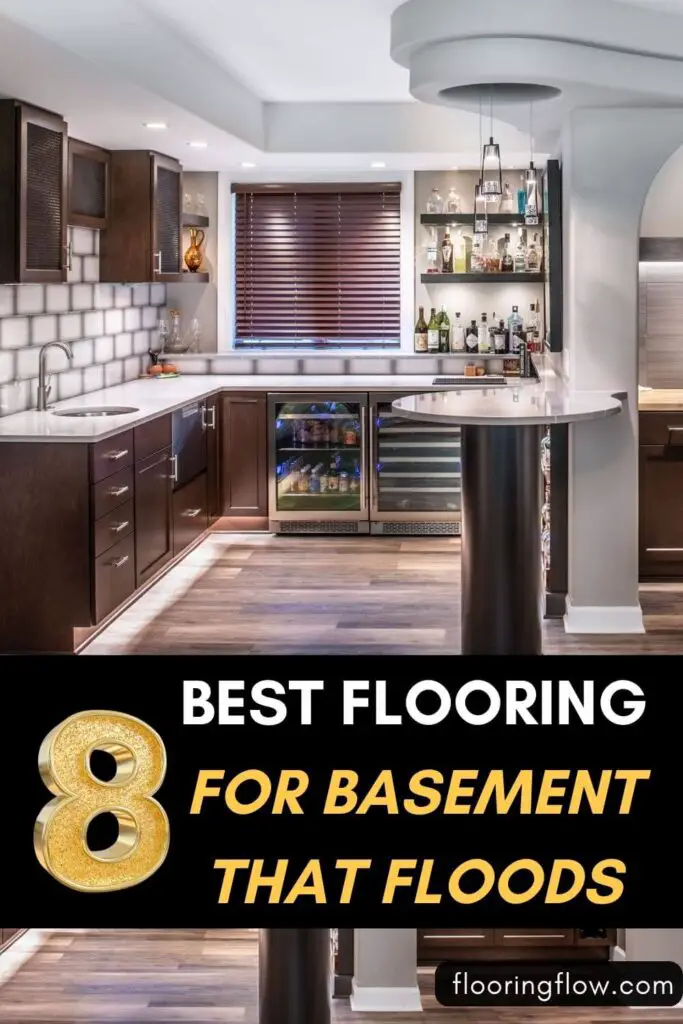
From options that offer basic protection to those providing the best defense against water damage, let’s explore the flooring types suited for a flood-prone basement.
Also Read: What Is The Best Flooring For Concrete Basement In 2024?
Table of Contents
What Is The Best Flooring For Basement That Floods
| Flooring Type | Pros | Cons | Water Resistance | Aesthetic Appeal |
|---|---|---|---|---|
| Carpet | Warm and cozy feel | Can be prone to mold if wet | Moderate (with synthetic and antimicrobial padding) | High |
| Cork | Eco-friendly, comfortable underfoot | Needs sealing to enhance water resistance | Good (with proper sealing) | High |
| Concrete | Extremely durable, versatile in finish | Hard and cold underfoot | Excellent | Moderate to High |
| Laminate | Mimics wood or stone, improved water resistance | Not as water-resistant as vinyl or tile | Better (with water-resistant options) | High |
| Engineered Hardwood | Real wood appearance, more stable than solid hardwood | More expensive than laminate | Good (specifically designed for moisture resistance) | High |
| Tile (Porcelain, LVT) | Highly water-resistant, durable | Hard surface, cold underfoot | Excellent | High |
| Pure Vinyls | Waterproof, versatile styles | Quality varies by product | Excellent | High |
| Rubber | Water-resistant, cushioned for safety and comfort | May not suit all decor styles | Excellent | Moderate |
Suitable Options for Basements Prone to Moisture
1. Carpet Flooring: A Cozy Option for Damp Basements
Carpeting can make a basement feel warmer and more inviting, an ideal choice for those looking to create a cozy living space. Synthetic carpets, in particular, offer quick drying times and resistance to mold and mildew, essential features for flood-prone areas.
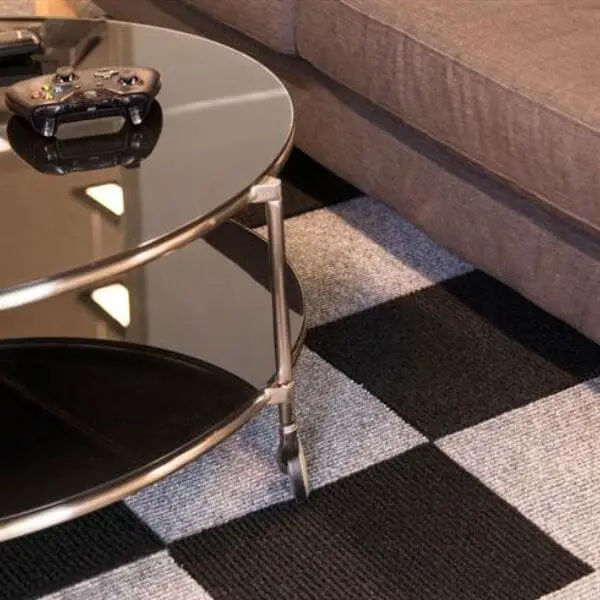
Opting for a carpet with anti-microbial padding further enhances its suitability for basements, providing an extra layer of protection against moisture.
2. Cork Flooring: Eco-Friendly and Resistant to Mold
Cork flooring stands out for its natural resistance to bacteria, mold, and mildew, thanks to the presence of suberin.
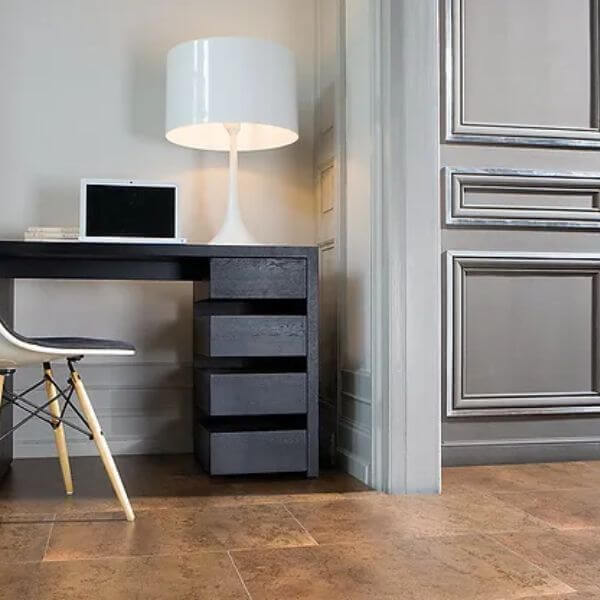
This eco-friendly option not only adds a unique aesthetic to your basement but also offers a degree of warmth and comfort underfoot. Sealing cork properly is crucial to maintain its resistance to water, making it a viable choice for basements with minor dampness issues.
Don’t Miss: Best Flooring For Basement Playroom: Renovation Ideas
3. Concrete Flooring: The Ultimate in Durability
For those seeking a no-nonsense option, concrete flooring is hard to beat. Its inherent durability and resistance to flooding make it an ideal choice for basements.
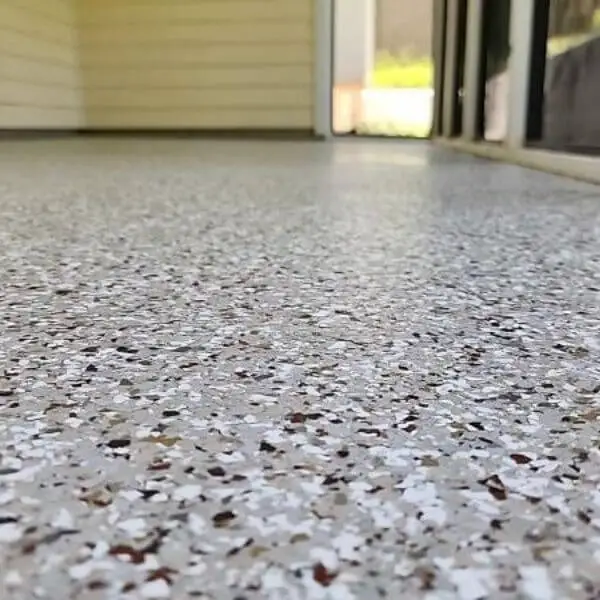
Concrete can be finished in various ways—stained, painted, or sealed—to enhance its appearance while maintaining its protective qualities. It also serves as a solid foundation for laying other types of flooring in the future.
Enhanced Options for Better Moisture Management
4. Laminate: Water-Resistant and Stylish Flooring
Modern laminate flooring offers improved resistance to water, making it a better choice for basements than traditional laminates.
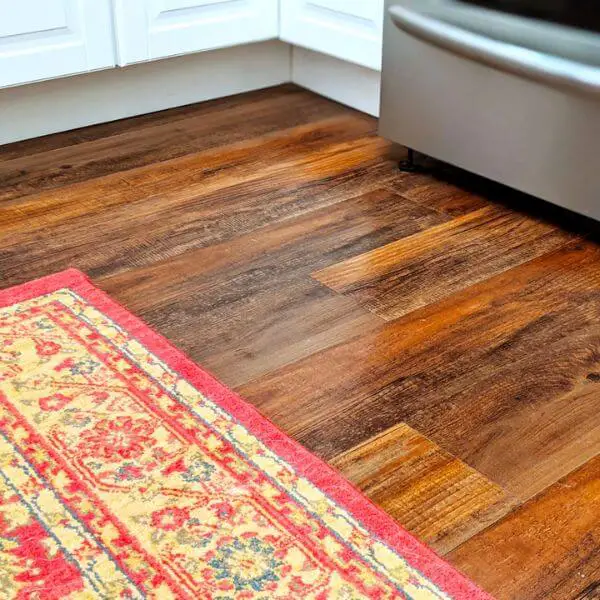
Look for options specifically designed for high moisture areas, featuring tight lock systems and moisture-resistant cores. This allows laminate to mimic the look of wood or stone flooring, providing style and functionality to your basement.
5. Engineered Hardwood Flooring: Stable And Resistant to Moisture Changes
Engineered hardwood brings the beauty of wood floors to your basement without the risk associated with solid hardwood.

Its layered construction minimizes expansion and contraction due to moisture changes, making it suitable for basements. Some engineered wood products are specifically designed for below-grade installations, offering enhanced moisture resistance.
High-Quality Flooring Options for Basements That Flood
6. Tile (Porcelain, Luxury Vinyl Tile): Durable And Water-Resistant Flooring
Tile flooring, particularly porcelain, is an excellent choice for areas at risk of flooding. Its water resistance and durability make it almost impervious to water damage.

Luxury Vinyl Tile (LVT) provides a similar level of protection, offering the appearance of wood or stone with the added benefit of being waterproof. Both options are easy to maintain, making them ideal for basements.
7. Pure Vinyls: The Top Choice for Waterproof Flooring
Pure vinyl flooring, especially types without paper or felt backing, is the best option for waterproofing your basement.

These materials can withstand significant water exposure without sustaining damage. Available in various styles, pure vinyls allow for design flexibility while ensuring your basement floor remains dry and undamaged by moisture.
Our Most Popular Article: Best Waterproof Flooring For Kitchen
8. Rubber: Safe and Water-Resistant Flooring
Rubber flooring is an excellent choice for basements used as playrooms or home gyms, thanks to its cushioning and water-resistant properties.

It’s easy to install and maintain, providing a durable and safe flooring option that stands up well to moisture and flooding.
Conclusion
Choosing the right flooring for a basement that’s prone to flooding involves balancing aesthetics, budget, and practicality.
From the good options of carpet, cork, and concrete, to the better choices like laminate and engineered hardwood, and finally to the best options including tile, pure vinyls, and rubber, there’s a solution for every basement and every homeowner’s needs.
Remember, the key is to select flooring that not only looks great but also provides peace of mind by standing up to water, ensuring your basement remains a functional and inviting space in your home.
By understanding the strengths and limitations of each flooring type, you can make an informed decision that ensures your basement is not only beautiful but also resilient against the challenges of moisture and flooding.
John Henry is a passionate co-creator of FlooringFlow.com. a website dedicated to answer all of your flooring related questions. After taking the challenges of flooring DIYs while learning skills for years, John is now ready to share his knowledge related to floor remodeling and projects with you.

![70 Bedroom Color Schemes: [year] Home Bedroom Refresh 70 Bedroom Color Schemes: [year] Home Bedroom Refresh](https://flooringflow.com/wp-content/uploads/2024/07/25-Cool-4th-of-July-Decorations-for-Outdoor-Patio-to-Celebrate-in-Style-16.jpg)
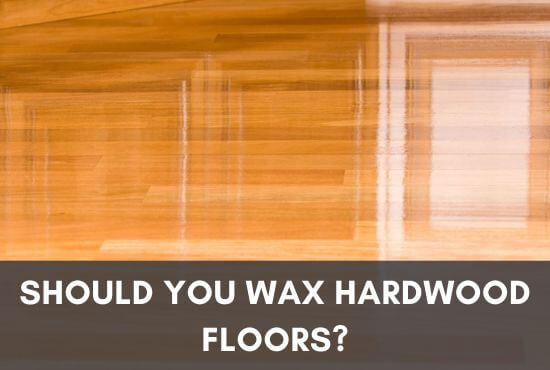

![35 Bedroom Color Combination Ideas: Cute And Cozy Inspirations [year] 35 Bedroom Color Combination Ideas](https://flooringflow.com/wp-content/uploads/2024/06/35-Bedroom-Color-Combination-Ideas.jpg)
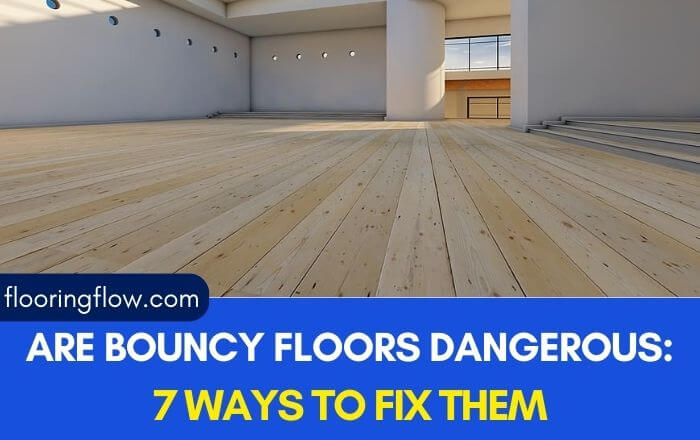
![Best Flooring For Concrete Basement In [year]: 18 Options Best Flooring For concrete basement](https://flooringflow.com/wp-content/uploads/2024/02/Best-Flooring-For-concrete-basement.jpg)
